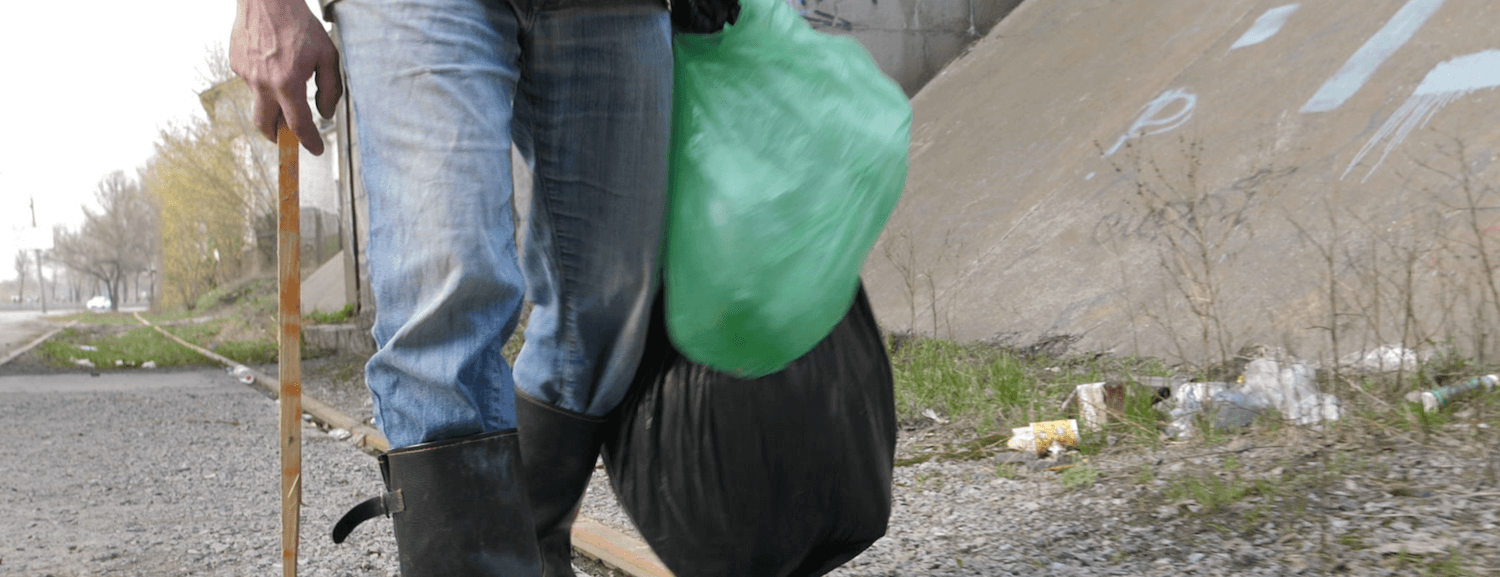Imagine this scenario. Your next-door neighbour has just thrown a piece of old furniture for council collection. According to your assessment, the set perfectly fit your living room and you have probably seen someone picking such stuff before.
And in any case, the owner has shown clear intentions of giving up ownership of the item. But wait! Before picking anything left on the street, ask yourself if it is legal or illegal to pick it?
The short answer to this question is both yes and no. It all depends on where you live. While scavenging rubbish in some US states is legal, the concept of abandonment remains controversial in Australia. A legal analysis published by Melbourne University shows that judges have not concluded about the legality of abandonment. Even when the initial owner has forfeited possession of the valuable item, a scavenging individual still risks being prosecuted.
An example that helps to illustrate this is a case in 2010, which was published by Fairfax Media, where a Prahran man was fined $900 and a 1-year good behaviour bond after picking two bikes from trash due for council collection.
There have been several arrests related to over-scavenging reported in the media. In one incident, Victoria Police arrested a man who is reported to have picked a vacuum cleaner from a trash bin. Although he was later released, this turn of events has raised questions about the legality of waste hauling.
There has been a long-standing debate on social media regarding the legality of scavenging rubbish, especially after the government Return and Earn Scheme. Some residents have used the opportunity to earn extra cash. But that has not stopped people from raiding other people’s bins.
Generally, the legal ownership of the rubbish in trash bins varies from council to council. For instance, the bylaws of Moreland, which cover parts of Melbourne, assume possession of any trash that has been laid out on the street for council collection.
What should you do if you spot something that interests you?
Even if your local council permits scavenging rubbish, you should follow certain etiquette. Some local councils require that you seek official permission from the homeowner before bin raiding. The city of Darwin, for example, will not restrict you from spying on trash bins on the street, provided you contact the person who disposes of the rubbish.
With such permission, some people would dive into every bin leaving the place messier. Most councils require waste to be sorted in separate piles to maximise the chances of recycling and speed up the collection processes. Unless you thrive in disorganised environments, I’m sure you detest seeing trash littering around the bin site. So, if you pick an item but later change mine, ensure that you place it exactly as you found it. You should also be careful not to break anything.
Items to avoid
While you may be happy to pick abandoned stuff for free, there are certain items that give you more headaches than if you have lived without. Some second-hand items such as beddings and mattresses, could be carrying nasties such as bedbugs, head lice, and fungi. Likewise, furniture designed with medium-density fibreboard is a hassle to renovate.
Is scavenging rubbish a problem?
Scavenging proponents argue that it is a source of free food, while others see it as a form of protest to the problem of food wastage. On the other hand, people who scavenge are often seen as desperate. Sure, most of us have scavenged at least for an item or two, but what started with a genuine intention has now become a menace. Besides, there are better opportunities to recover used items than scavenging.
Scavenging for rubbish is a problem because people who bin raid often leave the place messier than they found. In the process of looking for valuable items, they may have to remove trash items. Some leave rubbish outside the bin. But this is not even a real danger.
Some people scavenging rubbish may not be looking for valuable items but your personally identifiable information. They can use this information to apply for credit cards or use their identity for other mischievous purposes.
In the wake of increasing cases of bid raiders stealing recyclables, Unley Council called for a crackdown because such activities are costing the council in upwards of $900 a week.
If you want to throw some bulky material such as furniture, consider different options. Some items are collected by the council head directly to the landfill. Consider if someone else could reuse the items. You can donate some of these items to family and friends or deliver them to drop-off points. Be sure not to throw out your rubbish using your neighbour’s rubbish bin as this may be illegal.
Paul’s Rubbish Removal is a rubbish removal service that offers Sydney residents the opportunity to dispose of their unwanted household goods immediately and easily. We safely hand-remove your junk and garbage for you and we can do that today with our same-day rubbish removal service. We provide same day rubbish removal services 24 hours a day so that we do not cause any inconvenience to you.
Contact us for a free quote on 0407 125 125 and ask us how we can help!







